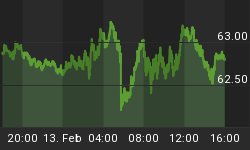Congratulations to the village board of Lincolnshire, Illinois for having the courage to stand up to union bullies by passing right-to work legislation at the local level.
The Daily Herald reports Lincolnshire Creates Right-to-Work Zone that Unions Oppose.
Lincolnshire has become the first town in the Chicago area to establish itself as a right-to-work zone, a move critics have assailed as anti-union.
To create the zone, the village board approved an ordinance preventing local employers from requiring workers to pay union dues with payroll deductions.
That proposal was a major tenet of Gov. Bruce Rauner's controversial Turnaround Agenda for Illinois, which many people have blasted as being anti-union.
Elements of the Turnaround Agenda -- especially the right-to-work proposal -- have been criticized as unconstitutional, too.
In a formal opinion issued in March, Illinois Attorney General Lisa Madigan said federal labor law allows such policies to be enacted only on a statewide basis.
But that didn't stop Lincolnshire's village board Monday, which quickly approved the plan after listening to an hour of public comments.
Courage to Take a Stand
Unions packed the village halls as they normally do for such affairs.
Coercion, threats, and backroom deals with corrupt politicians to get their way are all part of union tactics.
But in a 5-1 vote, the board had the courage to do the right thing.
"This is union busting," Chicago resident and union organizer Ken Edwards told the board. "You the trustees are being used. The 1 percent are using you to get to us."
Ted Dabrowski, vice president and spokesman for the Illinois Policy Institute, a group that has promoted right-to-work legislation responded with the simple truth.
"This isn't about unions, it's about individual freedoms. It's also about the right to not join a union," said Dabrowski who is part of a group that created a model ordinance that Lincolnshire officials used to draft their own.
As a senior fellow of the Illinois Policy Institute, I applaud the trustees courage to take the correct stand.
Right to Not Belong
I champion national right-to-work legislation as well as elimination of prevailing wage laws that tie many states to unions or union wage scales even in right-to-work states.
No one should be able to force anyone to belong to a union to get a job. That is the heart of the matter.
Is this union busting? Of course it is.
But forced membership against one's free will constitutes slavery. So by all means, let's bust up the biggest slavery racket in the world: forced unionization.
Union busting of this nature is long overdue here, there, and everywhere.
Tide is Turning
Lisa Madigan will challenge the ruling. Should Madigan prevail in Illinois, I expect the US Supreme Court to hear the case with potential nationwide implications.
In July of 2014, the US Supreme Court Rules Government Cannot Force-Unionize Workers Into State Entitlement Programs.
In Harris vs. Quinn, the court's 5-4 decision ruled in favor of plaintiff Pam Harris over then Illinois governor Pat Quinn.
Harris a mother from suburban Chicago who did not want to be part of a union or pay union dues. She takes care of her disabled son and participates in a state Medicaid program.
The justices ruled that Medicaid beneficiaries and people participating in state entitlement programs are not state employees, and cannot be forced into a union or forced to pay union dues.
Paul Kersey at the Illinois Policy Institute explained:
For more than a decade, government unions have been forcing people who are not state workers - moms and dads caring for children with developmental disabilities, home day-care providers for low-income children and others - to pay dues to a union as a condition of receiving help from their state governments. Both Gov. Pat Quinn and now-disgraced former Gov. Rod Blagojevich issued executive orders allowing the unionization of people who were not state workers. This resulted in Illinois government unions making $20 million a year from these workers, many of whom never wanted to join or pay dues to a union in the first place.
Fortunately, today the U.S. Supreme Court has affirmed that plaintiff Pam Harris won't have to jeopardize and limit her son's care by being forced to join a union she does not want, agree with or support.
Not Far Enough
Want to be a public school teacher, plumber, electrification, etc., etc. in Illinois? If so, you have to pay union dues.
In essence, you cannot work many trades unless you agree to be a union member, paying union dues. That needs to end right now.
My only problem with the 2014 ruling was that it did not go far enough. The court did not make the final step of mandating national right-to-work practices and eliminating forced union dues altogether.
An Illinois challenge by Madigan will give the US Supreme court another chance to do what they should have done in 2014: kill forced unionization across the board.
















